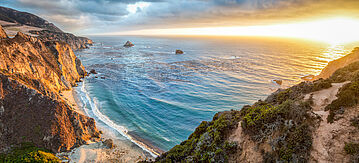World Ocenas day

The United Nations celebrates World Oceans Day on 8 June.
The oceans are our planet's largest ecosystem and cover 71 per cent of the Earth's surface. They provide people with a source of food and act as transport routes; they constitute a source of energy, are home to countless forms of life, produce oxygen, influence the climate and do much more besides. However, they are also increasingly faced with dangers such as pollution, overfishing, oceanic warming and acidification.
Since 2009, the United Nations has been celebrating the 8 June as World Oceans Day across the globe to raise awareness of the value of the oceans and the threats they face. In 2015, the theme of World Oceans Day is "Healthy oceans, healthy planet".
Among the targets included in the Strategic Plan for Biodiversity 2011-2020, which was agreed within the scope of the Convention on Biological Diversity (CBD), is a key target stipulating that 10 per cent of marine and coastal areas should be placed under protection by 2020 (Aichi target 11).
With a total volume of almost EUR 107 million, the German Federal Environment Ministry (BMU) is providing support through the International Climate Initiative (IKI) to 26 projects around the world that aim to protect coastal and marine areas and to achieve sustainable marine resource use. In developing countries and emerging economies, these projects promote the establishment, improvement and networking of marine and coastal protected areas, and the restoration of degraded ecosystems. In this context, the support focuses on policy advice and capacity building related to the planning, management and governance of marine and coastal areas. It also focuses on the promotion of networks for exchanging information on lessons learned and awareness-raising campaigns.
The global IKI project "Blue Solutions", for example, is establishing a network that is committed to the protection, sustainable use and restoration of marine and coastal ecosystems. The network participants exchange views about concepts, tools and experiences in this area, and develop and test pilot measures. The project supports these activities through measures such as organising workshops and establishing an online platform.
Working together with local partners, the project entitled "Protection and sustainable use of marine and coastal biodiversity in the Gulf of California, Mexico" aims to put in place by 2018 the conditions that will enable protected areas and special use zones comprising 460,000 hectares and a coastline of 1,000 kilometres to be established.
In addition to the networking of various national marine protected areas, stable funding for the management of protected areas plays a major role. In some projects, innovative funding mechanisms, such as payments for ecosystem services that specifically take place in the context of marine and coastal protected areas, are being implemented.
The IKI does not just support the conservation of threatened marine and coastal systems; it also uses various measures to restore degraded ecosystems so that they are once again able to fulfil their functions and provide their services.
In the Vietnamese province of Bac Lieu, for instance, 100 hectares of coastline have been reforested in a way that takes biodiversity into consideration. This measure is restoring and strengthening natural functions that ensure protection against flooding. As part of efforts to restore the mangrove forests, which had previously been destroyed for the purpose of shrimp production, care is being taken to plant endemic mangrove species. These mangroves play an important role in the reproductive cycle of many species of fish, serve as carbon reservoirs, provide protection against the effects of climate change in coastal regions and preserve biological diversity. In addition, the local population uses the hard wood from the mangroves as a fuel and as a construction material.
In the Philippines, coral reefs, for example, are being preserved by designating new protected areas and by improving existing ones. The reefs serve as natural breakwaters and therefore perform an important coastal protection function. One of the IKI projects provided support to 17 marine protected areas comprising 90,000 hectares and thereby made a significant contribution towards improving their management.
World Oceans Day once again highlights the importance of the oceans and coastal areas in achieving sustainable development objectives. It also underlines the significant role they play in terms of health, nutrition and income security, especially for local populations.
